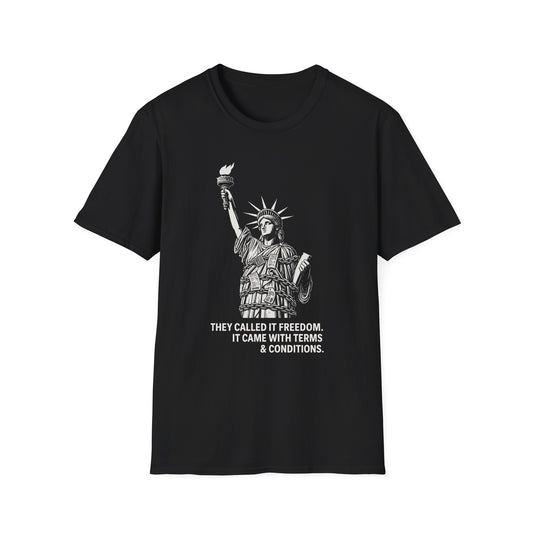
China vs. America: The New Cold War Has Begun
TRADE WAR IGNITES: America vs. China and the Cost of Economic Ego
Today, April 9, 2025, might just become a date historians look back on as the day the economic Cold War turned hot. America raised its tariffs on Chinese imports to an unprecedented 125%, a breathtakingly bold move from President Trump, effectively igniting a full-blown economic battle with China. In a tit-for-tat response, China immediately fired back with an 84% tariff increase on American goods.
But what does this actually mean beyond the screaming headlines, frantic stock market traders, and political chest-thumping? It means average Americans—you, me, your neighbor down the street—are about to feel the crushing weight of these geopolitical decisions in our wallets, on our dinner tables, and possibly in the security of our jobs.
The Road to Economic Warfare
To understand today's explosion, we have to rewind to the start of 2025. On February 1st, the U.S. kicked off the year by increasing tariffs on Chinese goods by 10%. China predictably retaliated just days later, imposing tariffs ranging from 10% to 15% on American coal and agricultural machinery.
Then, in March, America ramped up tariffs again, and the dance continued—10% increases here, retaliatory tariffs there—escalating to today's climactic showdown. It reads less like diplomatic strategy and more like a reckless poker game, with both sides pushing all their chips in, gambling with billions in trade and millions of livelihoods.
Why Tariffs Matter (and Why You Should Care)
Tariffs are essentially taxes that governments impose on imported goods. The theory is straightforward enough: make foreign products more expensive, encourage domestic purchases, and strengthen national industries. Simple, right?
Not quite.
When America slaps tariffs on Chinese products, it’s not just China who feels it—it’s us, the everyday American consumer. Prices rise sharply. Products we rely on daily—from smartphones, laptops, and TVs to everyday household items like clothing and kitchen gadgets—suddenly cost significantly more. We're not talking minor price hikes here; we're talking double-digit increases overnight.
And who pays for these hikes? You guessed it: the American working class. The rich won't bat an eye at paying extra for their new gadgets. But the rest of us? We'll feel the pinch immediately and severely.
Hidden Impacts and Silent Struggles
But rising consumer prices are just the beginning. What happens to American farmers when China, the largest consumer of U.S. agricultural products like soybeans and pork, decides to buy elsewhere? Entire farming communities in the Midwest could face financial ruin. Families who've farmed for generations risk losing everything to bankruptcy.
And what about manufacturing jobs? Companies relying on Chinese parts now face drastically increased costs. Businesses operating on razor-thin margins might lay off workers—or worse, shut down entirely. Blue-collar America, already struggling under decades of outsourcing and automation, is poised to bear the brunt of this trade war.
What Comes Next: Recession or Resilience?
The truth is, no one knows for sure how far this trade war will go. But economic indicators don’t lie—consumer confidence will likely dip, inflation may rise, and the cost of doing business across almost every sector could spike. That’s a perfect storm for a recession. The last time we engaged in this level of tariff warfare, the economy slowed, small businesses folded, and middle-class families were forced to cut back on basics.
And it’s not just about the goods coming from China. When America becomes unpredictable, allies begin to rethink trade relationships. We become the unstable partner. International trust erodes. Foreign investment dips. Global cooperation falters. Suddenly, we’re not just at odds with China—we’re isolated. That’s not economic strength; that’s economic suicide.
The Broader Stakes: America vs. China on the Global Stage
Let’s zoom out. This trade war isn't just about economics—it's a showdown for global supremacy. America, once the unchallenged superpower, faces an existential threat in China's rising dominance. This trade war is a battle for economic supremacy and geopolitical influence.
But this power play between nations forgets one crucial point: behind the flashy headlines and political bravado are millions of lives disrupted, families torn apart by financial insecurity, and communities devastated by economic uncertainty. Leaders wage economic war comfortably from boardrooms and political chambers, while ordinary Americans become collateral damage.
Stock Market Chaos: Main Street Pays for Wall Street Panic
The markets reacted predictably: volatility surged, investors panicked, and billions evaporated from retirement accounts in mere hours. But make no mistake: Wall Street's losses today inevitably trickle down to Main Street tomorrow. When corporate giants bleed money, it’s not the CEOs who feel the sting—it’s the thousands of average employees who lose their jobs when companies scramble to recover losses.
Global Supply Chains and the Ripple Effect
Today's interconnected economy means a tariff isn't just an isolated tax. A single tariff hike reverberates through global supply chains, causing unpredictable disruptions. Manufacturers scramble for alternative sources, increasing costs and inefficiencies. Ultimately, these inefficiencies cascade into price hikes and shortages, causing real hardship for everyday Americans who depend on affordable goods.
The Corporate Shield: Why Tariffs Burn Instead of Build
The idea that we can tariff our way to prosperity is a delusion sold to us by politicians who never miss a meal. Tariffs don’t create—they restrict. They don’t build—they burn. You can’t manufacture a stronger middle class by making groceries, phones, medicine, and gas more expensive. That’s not strategy. That’s sabotage with a flag draped over it.
Here’s the most twisted part: some companies love this. They’ll raise prices under the guise of tariffs, even if their supply chains remain unchanged. Why? Because chaos creates cover. You and I won’t know whether that 30% price hike is due to Chinese tariffs or just pure corporate greed. Inflation becomes the smokescreen for manipulation.
While we tighten our budgets, these companies will post record profits. And the politicians who enacted the chaos? They’ll pretend they saved American jobs while ignoring the thousands quietly lost in the shuffle. It's all optics. Nothing more.
Immediate Warnings for American Consumers
If you think this trade war won’t affect your daily life, think again. Already, major U.S. retailers are warning of upcoming price hikes. Tech companies are freezing hiring or outsourcing more jobs. Logistics firms are rerouting global shipments at higher costs. Even restaurants—yes, your favorite local diner—will face higher ingredient costs if their food distributors rely on Chinese goods.
The Debt Spiral Nobody Talks About
And let’s talk debt. America is already drowning in it. Add reduced trade revenue, higher prices, and lower tax intake due to job losses—and we’re staring down a budget deficit bomb waiting to explode. We’ll either print more money or cut essential services. Either way, guess who pays?
The Historical Perspective: Tariffs Through Time
Historically, tariffs have repeatedly been wielded as political weapons, often with disastrous consequences. Consider the Smoot-Hawley Tariff of 1930—America’s ill-fated attempt to shield domestic industries during the Great Depression. Instead of bolstering economic recovery, it intensified the depression, plunging millions deeper into poverty. This history lesson underscores the dangers we now face with escalating tariffs on China.
Economic Nationalism: Patriotism or Propaganda?
The rhetoric of economic nationalism sounds compelling—protecting American jobs and industries. But peel back the layers, and the truth is far less romantic. Often, these measures do little more than shift economic burdens onto consumers and smaller businesses, benefiting only the largest corporations and political actors seeking short-term gains.
A Digital Distraction from Real Pain
What makes this worse is how distracted we are. Everyone’s too busy doom-scrolling on their phones, drowning in memes and meaningless content, to notice the slow economic bleed. We’ve been conditioned to laugh at our own collapse and call it coping. But this isn’t a meme. This is your future.
The average American is $7 away from financial collapse—and these tariffs just made that gap wider. It’s not just about politics anymore. It’s survival. This isn’t about red vs. blue. This is about green—the money that keeps your lights on and your fridge stocked.
The Bottom Line
This trade war won’t be won. There’s no victory when the battlefield is your bank account. While politicians posture, and pundits pontificate, real people will suffer—silently, invisibly, and irreversibly.
So, don’t wait for the fallout. Start preparing. Cut unnecessary expenses. Build savings if you can. Support small businesses. Vote with your wallet and your awareness. This is a wake-up call disguised as an economic strategy.
Unplug From The Matrix
Ready to stop believing the illusion? Tired of dancing to the rhythm of distractions while the walls close in?
Then do something about it. Wake up. Look deeper. And don’t just survive—take your power back.







